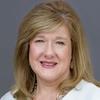Clergy Taxation: Understanding the Unique Tax Aspects
Note: CLE credit is not offered on this program
Recording of a 110-minute CPE webinar with Q&A
This course will explain the unique aspects of tax return preparation and planning for members of the clergy. Our panel will cover the treatment of earnings by ministerial employees, including employment by a congregation, retirement income, Social Security, gifts, and housing allowances.
Outline
- Who is a minister?
- W-2 or independent contractor
- Housing allowance
- Forms of income including gifts and honorariums
- Fringe benefits
- Retirement considerations
Benefits
The panel will review these and other notable issues:
- Who is a minister for tax purposes?
- How does the housing allowance work and what are eligible housing costs for clergy?
- What income or benefits are taxable to ministerial employees?
- Why do clergy pay self-employment tax?
- What happens with gifts and other income received by clergy?
- How to properly prepare a clergy employee’s Form W-2?
- How can retirement best be provided to clergy?
Faculty

Sandra Fowler, CPA, CPP
Payroll Services Manager
Sommerville & Associates
Ms. Fowler joined the firm in August of 2002. Sandra holds a Bachelor of Science in Business from Southwestern... | Read More
Ms. Fowler joined the firm in August of 2002. Sandra holds a Bachelor of Science in Business from Southwestern Assemblies of God University and Masters of Science in Accounting from the University of Texas at Arlington. In 2008, she achieved the status as a certified public accountant. In 2020, Ms. Fowler became a Certified Payroll Professional with the American Payroll Association. Ms. Fowler is a member of the Texas Society of CPAs and has spoken at several conferences on tax and compliance issues including the Co-op Ministry Conference, The Church Network conference, and the Shelby Systems Annual conference. She is also a member of PayrollOrg and the Board of Contributing Writers for the organization's magazine, Paytech.
Close
Elaine Sommerville, CPA
Shareholder
Sommerville & Associates
Ms. Sommerville is licensed as a certified public accountant by the State of Texas. She has worked in public accounting... | Read More
Ms. Sommerville is licensed as a certified public accountant by the State of Texas. She has worked in public accounting since 1985. Ms. Sommerville's practice has and continues to be centered primarily on the tax compliance aspects of nonprofit organizations and churches. She has assisted in the representation of several large case IRS exams as well as other IRS examinations of smaller organizations. Ms. Sommerville devotes her time to handling various IRS issues for individuals and for exempt organizations of various types. She actively consults on many IRS compliance issues for churches and other nonprofit organizations and prepares information returns of all types for tax exempt organizations.
Close
